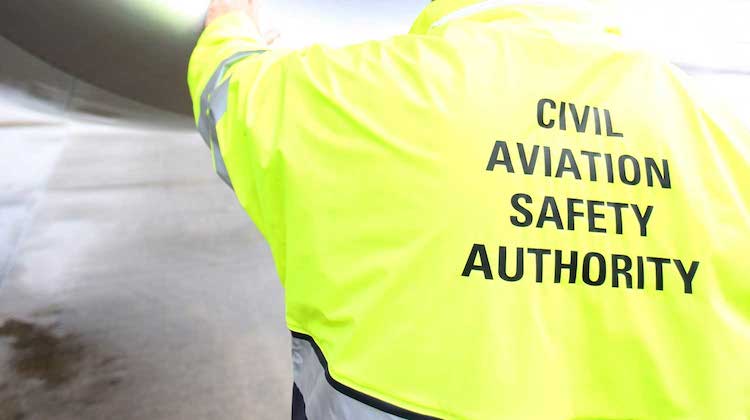The peak bodies representing the aviation sector in Australia say they are concerned with the slow pace of change at the Civil Aviation Safety Authority (CASA) and cost of compliance with new regulations.
The Australian Aviation Associations’ Forum (TAAAF), which comprise the peak representative bodies in the local industry, says although there is some good work being done at CASA, the organisation “is being swamped by the damage being caused by legacy regulations only now coming into force”.
“New CASA regulations are threatening the viability of industry and especially general aviation operations, with millions of dollars required to be invested for no commensurate safety gains,” TAAAF said in a statement on Thursday.
“TAAAF encouraged the CASA Board to persevere with their clear, Government- mandated cultural change agenda.”
TAAAF has called on CASA to abolish Civil Aviation Order (CAO) 48.1, which covers fatigue risk management, arguing that “industry rejects the limited science it is based on, the ignoring of decades of safe operations, the massive costs it will impose and the complexity that will inevitably lead to non-compliance”.
Also, it called for an industry task force to be established to look at “urgent exemptions and amendments” to Part 61, 141 and 142. Moreover, there was a need for “revised transitional arrangements to allow the industry to function , especially for firefighting operations and ATPL licences”, TAAAF said.
Finally, TAAAF said Australian aviation manufacturing regulations needed to “copy the modernised US FAR system and undo the damage caused by the loss of three TAFE skill providers”.
“At a meeting of peak aviation representative bodies, the TAAAF expressed considerable concern at the slow pace of reform of CASA and the ongoing cost impositions from new regulations,” TAAAF said.
CASA Director of Aviation Safety Mark Skidmore told the Regional Aviation Association of Australia (RAAA) national convention in the NSW Hunter Valley on Friday he has been working to set a “fresh tone” across the activities of CASA to face the demands of what was a “complex and ever changing aviation environment within which we operate”.
“Open communication with mutual respect would provide a breath of fresh air to all of us,” Skidmore said.
“I do want to lead CASA to be a trusted regulator.
“In any relationship trust must be earned and if it is to be maintained the basis on which it rests must be respected and protected and I am going to work hard in regards to doing that.”
Skidmore said the Aviation Safety Regulatory Review, and the government’s response to the 37 recommendations, had set a clear agenda for CASA to follow in 2015 and the years ahead and was a key priority.
“Our implementation schedule to the government’s response is fully embedded within out corporate plan for 2015/16 to 2018/19 and it articulates what we will do to deliver the government’s aviation safety objectives, how we intend to do that and the associated performance measures,” Skidmore said.
CASA is currently conducting a tour of Australia seeking feedback from the aviation community on its Flight Plan 2030, a statement of the organisation’s long term strategic intent that is due to be published by the end of the 2015/16 financial year.
Skidmore said 43 of CASA’s 55 parts that cover civil aviation safety regulations have been made, with 12 outstanding and eight parts currently going through drafting. He said Part 129 was currently being finalised.
Meanwhile, Parts 119, 133 and 135 had been finalised, but were currently being revised to simplify and remove some requirements not considered necessary “and hopefully reduce the cost”, Skidmore said.
On Part 61, which covers pilot ratings, licences and endorsements, Skidmore told the RAAA national convention he was “conscious of the impact of the change and your concerns about the new rules”.
“I am working hard to address and rectify these problems as expeditiously as possible and I acknowledge we could have managed the implementation of the flight crew licensing regulations better,” Skidmore said.
“I am listening to your feedback.”
Skidmore said he had established a “cross-divisional team” to review the development and implementation of the flight crew licensing suite of regulations and CASA was currently drafting instructions to address problem issues and amendments to Part 61.
“I need the Australian aviation community’s support to manage today’s safety issues and to plan effectively for the future,” Skidmore said.
“I firmly believe that by collaborating we will get the right safety outcomes from our regulations and regulatory practices and support a vibrant and strong Australian aviation community.
“It doesn’t mean you are always going to be happy with what we say and do but it does mean that our regulatory considerations must be, and must be seen to be, open and transparent, appropriately responsive to demonstrable safety concerns, fairly executed and consistently applied with a view to the achievement of legitimate safety-related objectives.”
CASA published its new regulatory philosophy, which sets out 10 key principles that guid and direct its approach to regulation, in September.





